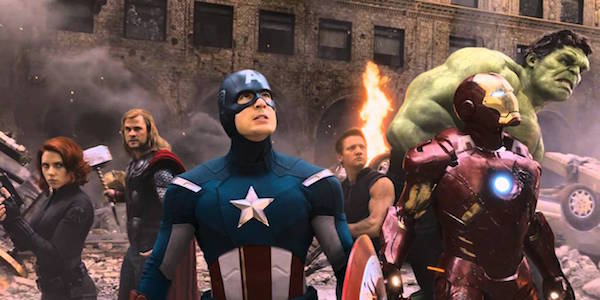Why Marvel & DC Should Stop Obsessing Over Their Cinematic Universes

Your Daily Blend of Entertainment News
You are now subscribed
Your newsletter sign-up was successful
These days, the silver screen is unquestionably dominated by the biggest and best franchises, and interconnected universes seem to be the next major step in that evolution. From the Marvel Cinematic Universe to the DC Extended Universe, we've seen major superhero franchises consolidate with one another to form mega-franchises. That being said, as time wears on, it has become increasingly clear that these studios should really stop obsessing over making sure that their movies tie into one another. Sit back, relax and allow me to explain.
One need only look at the superhero movies that hit theaters this year to get a better understanding of what I'm talking about. Two of the best superhero movies to hit theaters in 2016 -- Doctor Strange and Deadpool -- barely paid any attention to their respective cinematic universes at all. There's data to back that up; with the exception of Civil War, Strange and Deadpool outperformed every other superhero movie on Rotten Tomatoes this year. Doctor Strange tied itself into the MCU at the very end by acknowledging the Eye of Agamotto as an Infinity Stone (which ultimately didn't have much bearing over the film's plot), and Deadpool didn't even tie into the X-Men team that we have come to know over the years. They objectively existed on their own merits as totally self-contained standalone stories.
Of course, I will concede that Captain America: Civil War in many ways represents the cream of the crop when it comes to 2016's superhero movies, and that Civil War does rely on the interwoven nature of the MCU to work. However, not every movie can be Civil War; that type of event movie only works when enough solid foundation has been laid to make us care about that sort of conflict. To put it bluntly: it's not a sustainable model in the long term.
Looking ahead into the coming year only continues to hammer home the idea that standalone stories can still arguably grip us more than massive team-up events. DC has a self-contained period piece with Wonder Woman, Fox has the dystopian drama of Hugh Jackman's final Wolverine outing in Logan and the MCU has Thor: Ragnarok -- a sequel that seemingly intends to distance itself from the Earth-based drama in the Marvel universe.
So what's the ultimate takeaway here? Do we expect major studios to completely drop the idea of cohesive cinematic universes? Of course not, and we don't want them to. However, we would definitely like to see a major change with regards to the way in which they approach their cinematic universes. For Marvel, we would like to see the MCU ease up on the interconnected nature of the films. They've established a strong cinematic universe, now it's time to let the franchises breath a bit. For DC, it's important to slow down and not force these franchises together. Let the DCEU solidify slowly, over time. Finally, 20th Century Fox needs to learn from the success of Deadpool and the failure of X-Men: Apocalypse. Take it back to basics and cross over only when it works.
What do you think about cohesive cinematic universes? Do you think Marvel, DC and 20th Century Fox should double down on them, or should these studios place less of an emphasis on tying things together? Let us know what you think in the comments section below.
Your Daily Blend of Entertainment News
Originally from Connecticut, Conner grew up in San Diego and graduated from Chapman University in 2014. He now lives in Los Angeles working in and around the entertainment industry and can mostly be found binging horror movies and chugging coffee.

